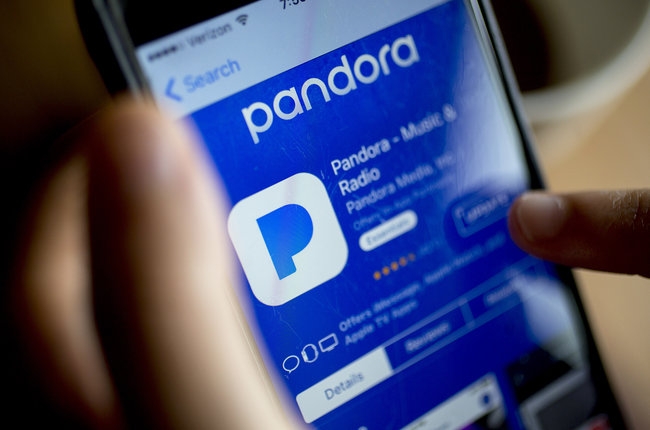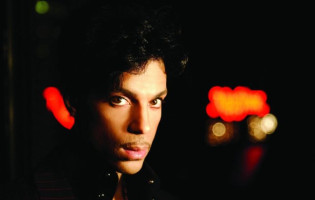Raising $680 million on the same day changes a few calculations...
With Pandora making two massive nine-figure deals on the same day (June 9) last week -- one that saw SiriusXM's parent company Liberty Media shell out $480 million for 16 percent preferred shares in the digital radio company; the other its $200 million sale of Ticketfly to Eventbrite -- the questions on most music industry watchers' minds are, what does each party stand to gain and what does it mean for the music industry as a whole?
What Does It Mean For Pandora?
Right away, Pandora needed cash, and got it from these deals. The SiriusXM investment will see cash flow to the digital radio firm in two tranches: $172.5 million right away; and the remainder to be paid by Feb. 1, 2018. In the second deal, Pandora sold Ticketfly for $150 million in cash at the deal’s close and a $50 million note payable to Pandora at a later date. (While that looks like a loss, considering Pandora paid $335 million for Ticketfly in 2015, in terms of cash it's almost a wash, since it paid $191.5 million and $244 million in stock.)
That means that the money from the Sirius and Ticketfly deals, coupled with the $199 million that the company disclosed in 2016 year-end report, gives the company a total of $856 million in cash, after it pays a $22.5 million kill fee for ending the proposed sale of $150 million worth of preferred shares to investment firm KKR. That $856 million buys Pandora time to prove it can build a successful, profitable on-demand music service.
Prior to building up its bank, Pandora's $199 million cash on hand meant it only had a year to show that its diversification into on-demand streaming could be successful. Its move into the on-demand space required more investment and comes with a more expensive business model, in that the cost of content rises from about 50 percent of revenue under statutory licenses for custom-programmed radio streaming -- which had been decreasing from about 60 percent of revenue as it achieved growth -- to about 70 percent of revenue for the more expensive interactive functionality that comes with the direct licenses required to provide on-demand streaming.
Why did it only have a year of breathing room? Rolling out its new on-demand streaming service has been expensive, and led to a depletion in cash over the past three years. Not including its capital raising activities, Pandora’s operating and investment in business activities in 2013 resulted in negative cash flow of $91.2 million in 2014; $144.3 million in 2015; and $233.85 million in 2016, according to the company’s SEC filings.
Now, with $856 million in cash, if all the deals go through, Pandora doesn't have to take risky chances in a hurry to prove that integrating its late-but-necessary on-demand diversification into its existing business model will yield a profitable company. Instead, it can take its time and get it, hopefully, right. The injection of funds gives the company at least three year cushion before it has to start worrying about cash again, when the $345 million in notes issued in December 2015 come due on July 1, 2020.
It also allows Pandora to remain an independent company that doesn’t need to sell because of cash-flow worries. If they can now come up with a winning profitable model that marries on-demand streaming with custom radio streaming, Pandora's shareholders, including founder Tim Westergren, may get a bigger payday down the road.
What Does It Mean For SiriusXM?
Sirius gets a ringside seat to how Pandora’s excursion into the on-demand world will play out, thanks to being allowed to pick three seats, including the chairman position, on Pandora's board of directors, now expanded to nine seats from six.
And although Sirius agreed not to buy any more Pandora shares for 18 months, the deal keeps alive the possibility that Sirius may one day buy Pandora outright. As it stands, the preferred stock deal shows that the only thing keeping the two companies separate was price. While some on Pandora’s board likely would rather remain an independent company, if Sirius had agreed to pay more for all its outstanding shares, that might not be the case today.
Sirius covets Pandora for several reason: its advertising structure, which is now showing it can generate both national and local advertising revenues; its 81 million active users, versus the Sirius listening base of 31 million subscribers; the diversity of the Pandora's listener demographics, which also includes younger demos in which Sirius is weak; and the possibility of experimenting with more functionality for Sirius' existing programmed model -- learning from Pandora's experiences -- without going into more expensive, on-demand licensing.
Having said that, the two companies remain separate, even with this deal. Anti-trust considerations notwithstanding, the Sirius board and the Pandora board each also have a fiduciary responsibility to do right for their individual companies. The idea, as voiced by some music industry watchers, is that they could jointly negotiate licensing is naive and far-fetched.
Even if Sirius were to buy Pandora down the road, it couldn’t convert Pandora’s licenses to its own, which this year sees Sirius pay 11 percent of revenue for master recordings and, Billboard estimates, about 3.67 percent for publishing, versus the higher combined 53 percent of revenue paid by Pandora.
For one, licensing doesn’t work that way.
Secondly, the different business models require different licenses.
Sirius gets a grandfathered break on licensing due to the start-up costs incurred for launching and maintaining its satellites. Its model is programmed music with little listener functionality: the less listeners can control, the lower the price to license. Pandora’s model is now both custom radio -- whereby the user picks one song, upon which programing is built -- and on-demand listening. Each business model -- programmed radio, custom radio and on-demand listening -- requires a different and separate license, ranging from the less-expensive programmed model to the most expensive on-demand model.
What Does It Mean For John Malone’s Liberty Media?
From Liberty Media’s perspective, it hopefully gets the same thing from this deal that it got when it invested $430 million in Sirius in February 2009, receiving preferred shares convertible to 40 percent of the company’s outstanding stock. Since it made that investment, Liberty Media now owns 60 percent of Sirius, which has a market capitalization of $24.26 billion, according to Yahoo Finance, which means Liberty’s stake is worth $14.7 billion. Malone and Liberty are looking for a replay of its Sirius experience with Pandora: another investment that turns into a profit windfall.
Moreover, its investment in Pandora has little downside risk. Since the terms are in preferred shares, if worst comes to worst for Pandora and it files for Chapter 11 bankruptcy protection and is forced to liquidate, Liberty Media gets paid right after the creditors. And since Pandora only has $342 million in long-term debt, there's a good chance Liberty would get back most, if not all, of its $480 million investment, while common share holders would get wiped out.
For its 16 percent preferred stake, convertible into 19 percent common shares, Liberty also gets an oversized one-third of the chairs on the board, including the chairmanship, which means it can likely dictate -- or at least influence -- the strategic direction of Pandora and use its business savvy to bring Pandora to smooth financial waters. And if Pandora comes up for sale again, Liberty Media will hold the edge on valuing the company, too.
All in all, the deal looks like a win for all three parties; and for the music industry, too.








